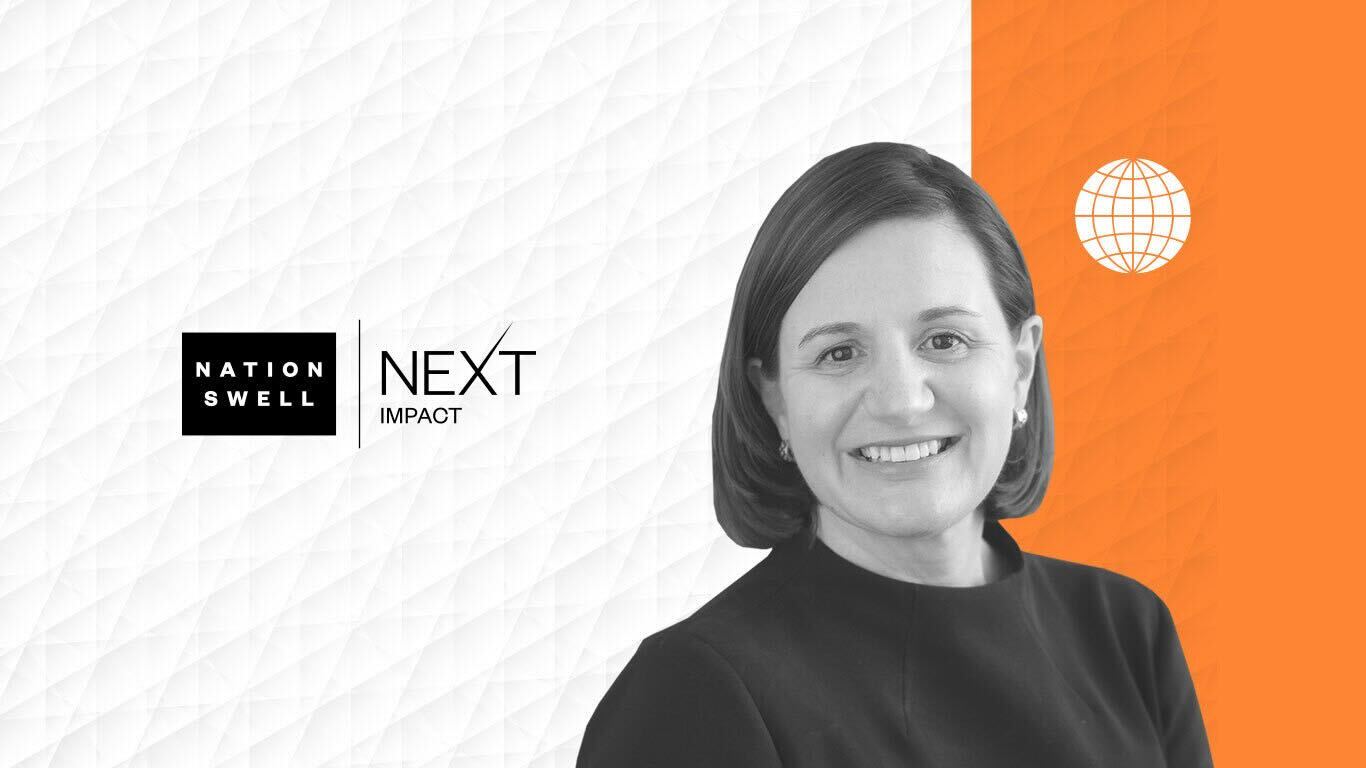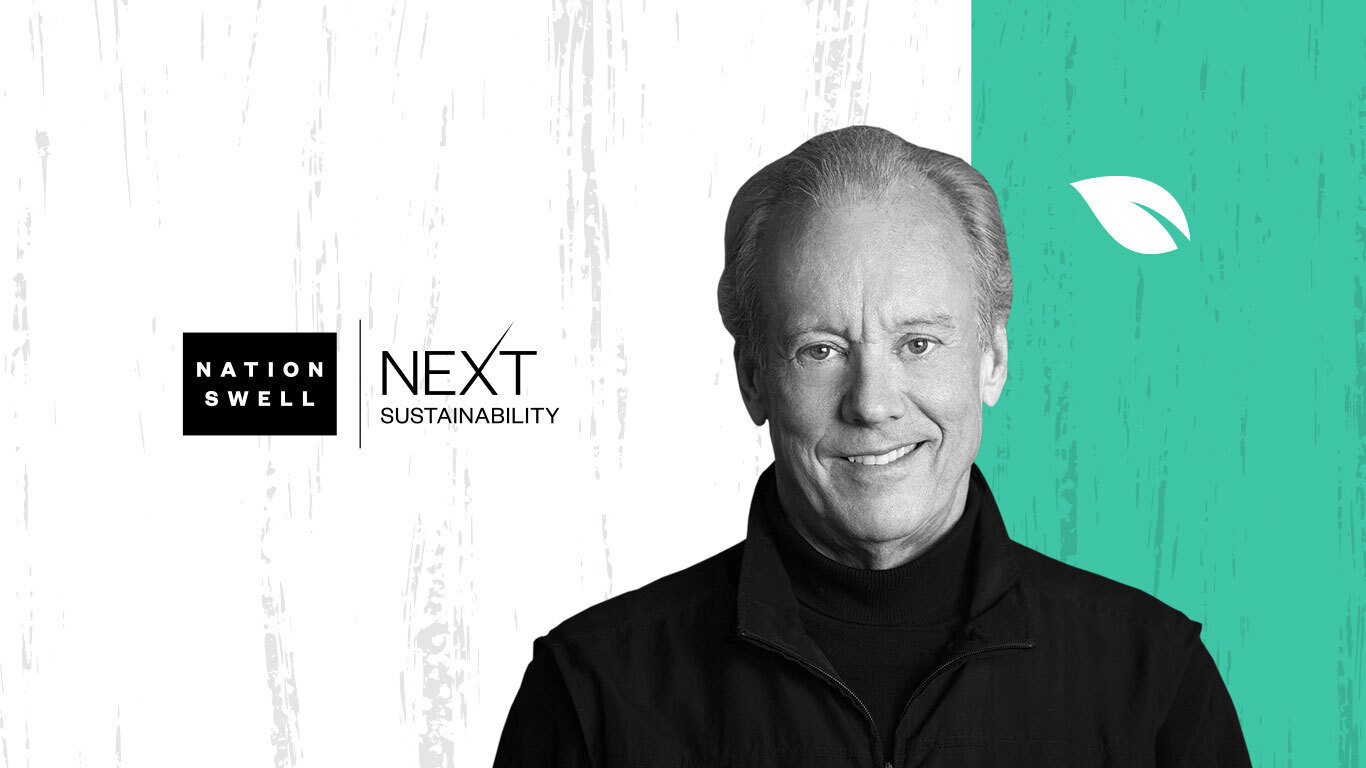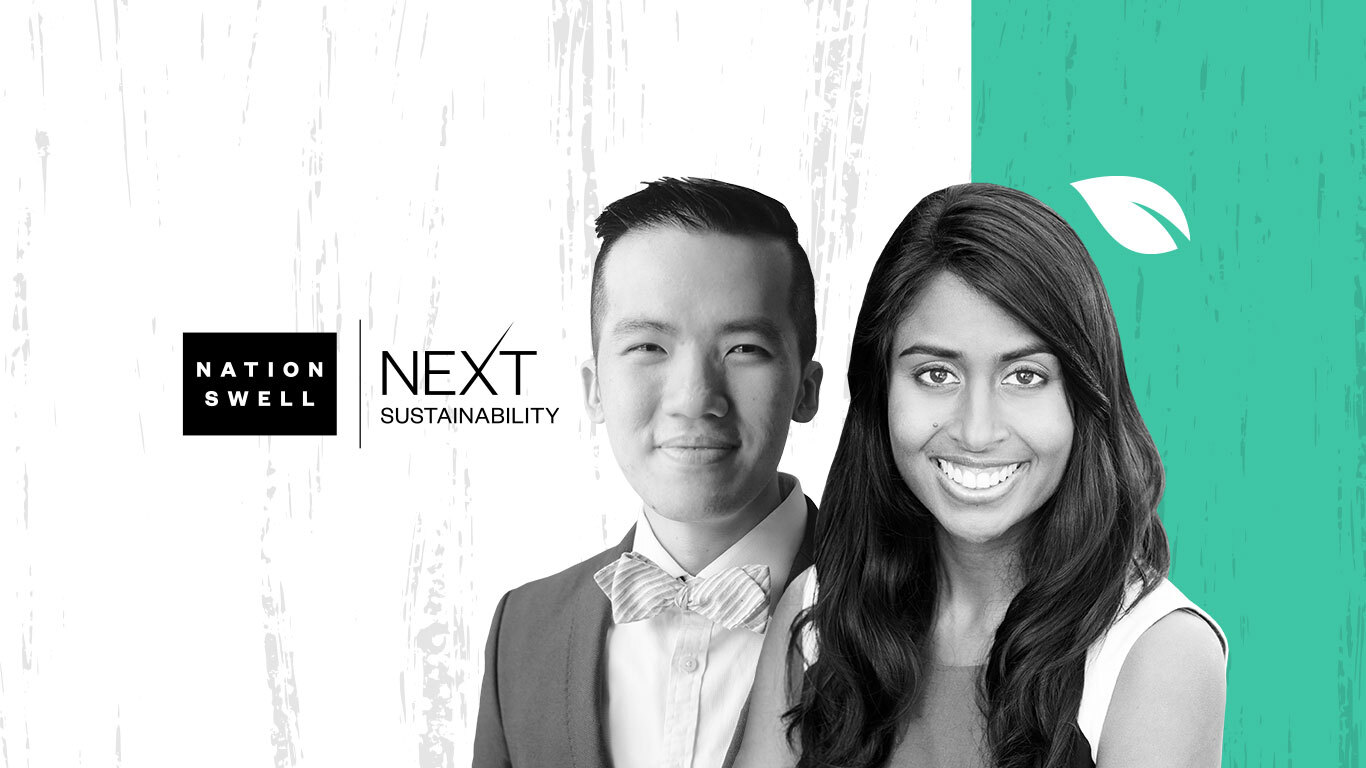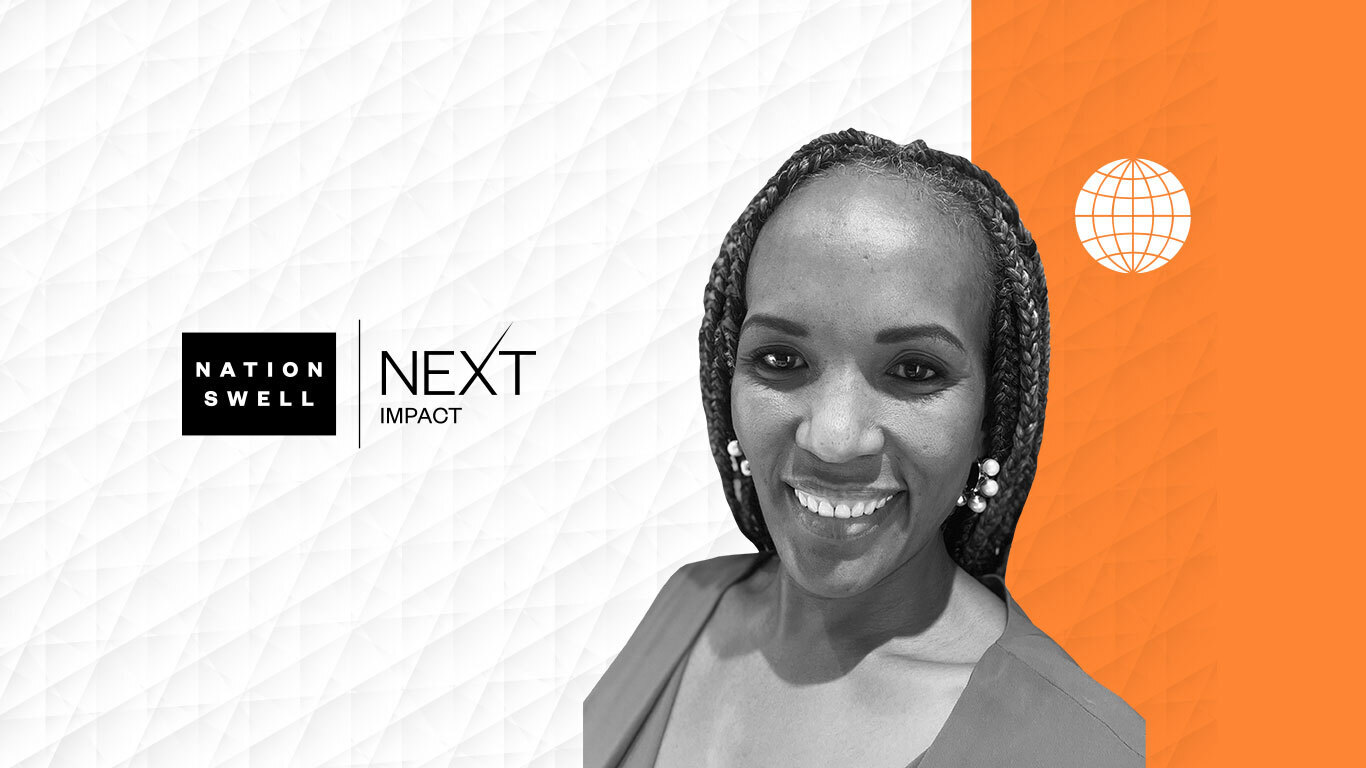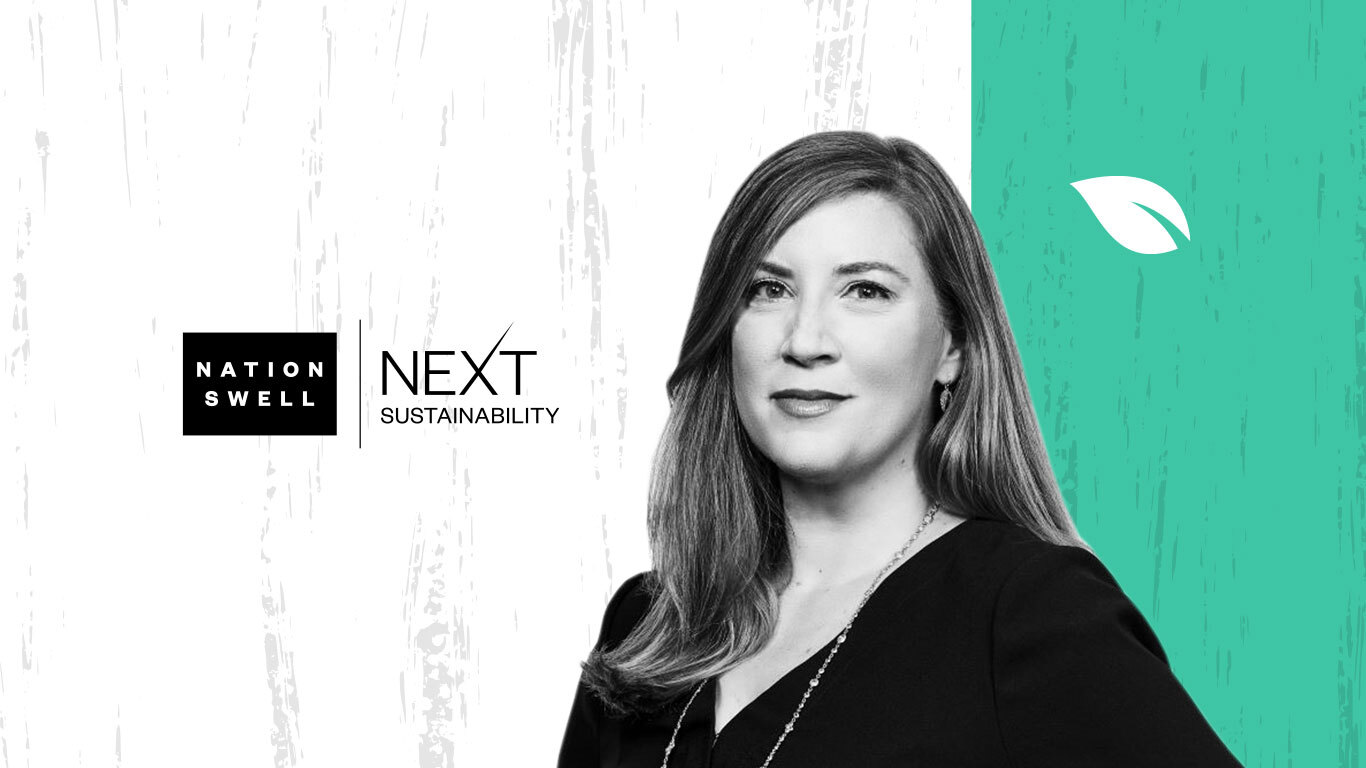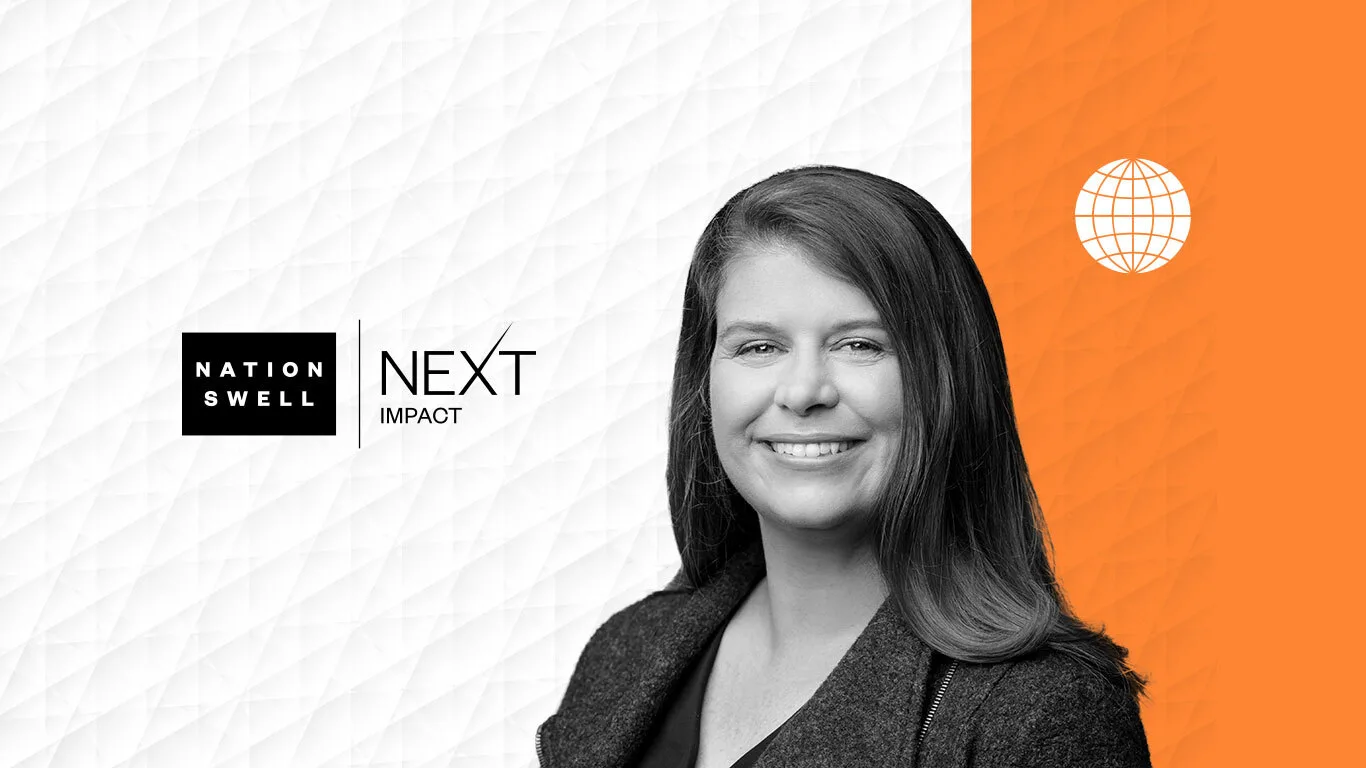At a moment of growing inequality and division, who is advancing the vanguard of economic and social progress to bolster our most vulnerable communities? Whose work is fostering the inclusive growth that ensures every individual thrives? Who will set the ambitious standards that mobilize whole industries, challenging their peers to reach new altitudes of social impact?
In 2024, Impact Next — a new editorial flagship series from NationSwell — will spotlight the standard-bearing corporate social responsibility and impact leaders, entrepreneurs, experts, and philanthropists whose catalytic work has the potential to shape the landscape of progress amid urgent need for social and economic action.
For this installment, NationSwell interviewed Sally McCrady — Chair and President of the PNC Foundation.
Greg Behrman, CEO and Founder, NationSwell: What brought you to this field? Was there anything formative or foundational that galvanized your commitment to driving social and economic progress?
Sally McCrady, Chair and President of the PNC Foundation: Like anything, probably a little bit of luck and being in the right place at the right time.
I’ve been at PNC for 26 years now, and I started right out of graduate school. I really wanted to work for a nonprofit, and never thought I would be saying someday I’ve been at a bank for 26 years. But I got a terrific opportunity at PNC to start doing research in support of our Community Development Banking group, which felt like a good first step, and I became really interested in the role that banks can play in terms of community development.
From there, I went into our Compliance group where I did work for the Community Reinvestment Act, which I’m happy to say PNC has had an outstanding rating under for the last 40 years. In September of 2003, PNC announced a program called PNC Grow Up Great, and I was immediately drawn to its mission and the importance of early childhood education. Twenty years later and here I am — working not only on our Grow Up Great program, but also overseeing PNC’s charitable giving.
Behrman, NationSwell: What do you think is different about how PNC approaches its philanthropic work and community investment?
McCrady, PNC: To me, the piece that’s always made our philanthropy impactful and interesting is that we are very committed to making decisions locally. To give some context, when PNC Grow Up Great launched in 2004, PNC operated in 12 markets — we had never really done anything where everybody had a similar focus. Fast forward 20 years, and we’re now in 54 markets.
What’s been interesting, and what’s allowed Grow Up Great and our philanthropy in general to be successful, is that we have never stepped away from the local approach to philanthropy. So while Grow Up Great has a common mission, and we are all focused on supporting high-quality early childhood education, that looks a little bit different in each one of our markets because we know that our local markets and our employees there, know the needs; they know the nonprofits that can have the greatest impact, they really take the lead and make the decisions locally, and that’s been very successful for us.
Behrman, NationSwell: Is there a signature social or economic project or initiative you’re currently overseeing that you’d like to spotlight during our discussion?
McCrady, PNC: One of the things I treasure most about Grow up Great is our strategic focus on one common social issue — early childhood education —. What that’s allowed us to do, not only at the corporate level, where we have a couple of partnerships that are national in scope, but also at the local level, is build relationships that, in many cases, have spanned the full 20 years.
One of my favorite initiatives that we bring into all of our markets now is called Be My Neighbor Days. Across the country, we’re partnering with Fred Rogers Productions, a local PBS station, and a number of community partners for a community day with all sorts of different activities for families and their younger children to really think about how they can be great neighbors. They might be writing, they might be putting packages together for local senior communities, but everything is done with the importance of kindness in mind.
Another partnership that’s been amazing to work with is DonorsChoose, which is a platform where citizen donors can go online and help fulfill a teacher’s request, since we know they are still spending out of their own pockets for things they want to utilize in their classrooms.
Several years ago, when we first worked with DonorsChoose, the platform was not open to Head Start programs, which are one of our biggest partners since the inception of Grow Up Great. We’ve been able to work with DonorsChoose to re-envision the platform. And, with our committed funding, DonorsChoose now serves Head Start programs across the country. We’re so proud of this investment, because I can’t think of any educators that need it more than our Head Start teachers.
Behrman, NationSwell: Is there anything else that you might want to lift up in terms of the ambition of your work, or things that you feel like are particularly innovative that you’re pushing on right now?
McCrady, PNC: I’ll highlight our employee volunteerism program also, which is a little bit different than other corporate programs out there. First, our employees receive 40 hours of paid time off each year to volunteer. So one of the programs we can volunteer for is Grow Up Great, and we’ve had 1.1 million hours in support of early childhood education through the program. Second, I think volunteers are the heart and soul of our program, and it’s awesome to see how engaged our employees get. It’s so rewarding to support our philanthropic giving with employee volunteerism, and to support our employee volunteerism with philanthropic giving.
Behrman, NationSwell: People often talk about integrating employee giving, and philanthropy more broadly, into their business strategies. Are there connection points there with the work that you’re doing?
McCrady, PNC: We have a dedicated skills-based volunteerism program where we work with a small group of nonprofits in several of our markets to help address a particular issue they’re hoping to solve. For about 16 weeks, our employees and nonprofit partners work together to focus on that one problem. We’ve helped organizations with IT, job descriptions and overall HR strategies, we’ve supported landscaping and marketing needs, and we’ve helped Head Start programs streamline enrollment and translate documents into multiple languages.
We also encourage our nonprofit partners to think broadly about how they can use the experience and different skill sets of thousands of PNC employees to make a difference. So every day, we have opportunities to make those connections and help create long-term success.
The more we’ve learned about early childhood education and the positive impact it has on a child’s lifetime trajectory, the more we’re convinced it’s the place where we could really make a difference. And it wasn’t already crowded with a lot of voices — we felt like it was an area where we could really make a difference and, probably most importantly to who we are as a bank, there was a ton of economic research coming out that explained the value of long-term investment.
Behrman, NationSwell: Is there an approach to your leadership that you would say has allowed you to drive impact and be successful in the way you have?
McCrady, PNC: First and foremost, none of this would be possible without our executive leadership support and active engagement in driving the importance of our community work.
Another approach that has served me well over time is just having the utmost respect for my colleagues across the markets, and being such a huge fan of what they’re doing and the organizations that they choose to support. The different work they’re doing might not seem like a fit with the project we’re trying to do at first, but then when you understand the local nuances, it makes sense. So I think it’s just being open to new ideas, how things might look a little different in every city where we operate. And that’s OK, because again, our colleagues understand the community and what they’re trying to accomplish.
Behrman, NationSwell: What are some of the defining trends you’re seeing right now in community impact or corporate philanthropy?
McCrady, PNC: From a corporate philanthropy standpoint, one thing that’s really important in this moment is around employee engagement and just thinking about how all of our workplaces have changed dramatically over the last four or so years. One area we focus on a lot is making sure our employees understand what we’re doing in the community and have an opportunity to learn and engage in the impactful work we do.
For the last several years, one of my favorite things that we do to engage our employees is provide a DonorsChoose gift code around the holidays and let them go online and choose a project to support that speaks to them. So I think a lot of it is the importance of creating and enforcing PNC’s culture — really just tying everything back to the employee experience.
Behrman, NationSwell: Of the social or economic leaders who perform a similar function to yours at peer organizations, whose work inspires you, and who do you hold in high esteem?
McCrady, PNC: I’m following Mackenzie Scott and all of the decisions that she and her brilliant team have made in the last several years. It’s so interesting to see the nonprofits they select, and in so many cases they’re familiar organizations that we have worked with in a small way. I’m beyond excited to see the recognition and elevation into the national limelight, because in many cases they’re small local nonprofits that would never have these enormous resources to really take their mission to scale.
I’ll also mention Cathe Dykstra, who runs an organization called Family Scholar House in Louisville, Kentucky. The program is basically a housing education program; the majority of the clients are single moms, but there are also some great dads that have been part of the program as well. The scholars are graduates of high school who want to go on and get higher education – two-year, four-year degrees – and the program provides the stable housing and everything their families need to allow them to achieve their educational goals. It truly breaks the cycle of poverty in one generation, and what’s been awesome to see is that while they have five campuses in Louisville, it’s now spreading across the country.
Behrman, NationSwell: Could you recommend any insightful resources – maybe a book, report, podcast or article that has significantly influenced your thinking?
McCrady, PNC: A podcast I love and just discovered in its second season is Wiser Than Me by Julia Louis-Dreyfus.
Just this weekend, I listened to an episode featuring Diane von Furstenberg, and she also had Rhea Perlman and Bonnie Raitt as guests — it’s just amazing. The guests are women that are mostly in their 70s, talking about these remarkable careers and what they’ve done philanthropically. It’s just a ton of fun. She ends every podcast by calling her mom and telling her about who she’s just spoken to, and her mom has these wonderful anecdotes or insights that take you by surprise. It’s a wonderful array of women leaders that have accomplished so many things — I find it crazy inspirational every time I listen.

